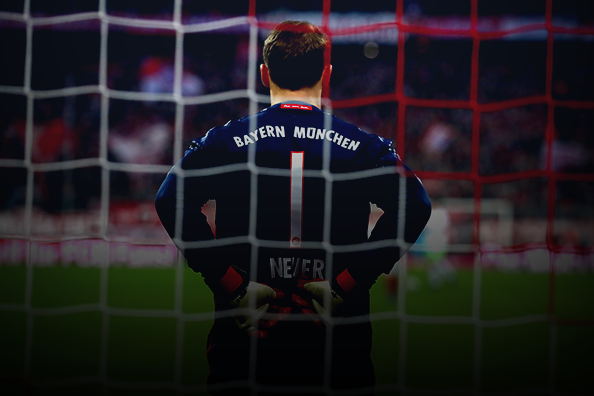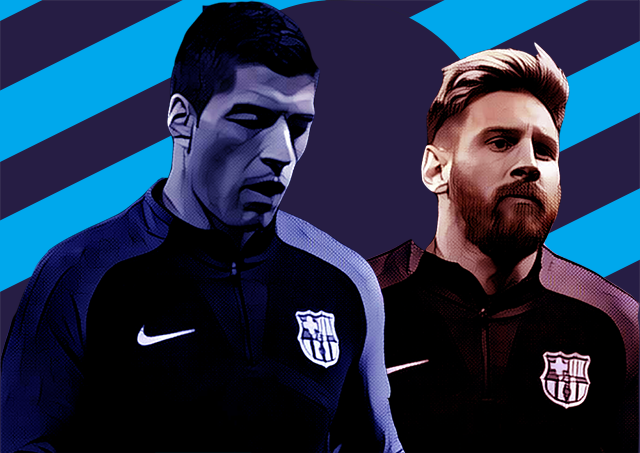If past records were to go by, the limelight is never with a goalkeeper. Previous winners of the Ballon D’Or have always held an attacking role in the teams they play for. An anomaly in this trend saw Manuel Neuer be shortlisted for the final three of this coveted award and from the get go, the German has the odds stacked against him. Vishal Patel believes that there is a case for Neuer to win this award, despite statistics and odds telling you otherwise.
1 out of 58. To the uninitiated, these are simple numbers, but those who know better, realise that this is representative of the number of goalkeepers that have been honoured by being handed a tag that says, ‘World Player of the Year’, or any such variation. A look at the list of winners will reveal that a few defensive players have won it, few enough to count on one’s left hand.
Moving away from the point, most of us believe, and understand that football is a game that consists of two functions; score goals, stop the opponent from scoring goals. Most will agree that each function is as important as the other. While not always being equals in terms of moral correctness (think of which type of football is always called the ‘right’ or ‘correct’ way of playing, attacking, defensive football), or ease on the eye, both functions are equally important for to achieve the ultimate goal, which is winning matches. This is much established, agreed upon, and generally accepted.

Despite the above being the case, when this time of the year comes, a number of names are bandied about for this prestigious prize, and almost all of them have one thing in common: they’re attacking players. In recent years, players who have won it, or have been close to winning it include Messi, Ronaldo, Iniesta, Ribery, Robben, Xavi, and Sneijder, among many other. Names like Cannavaro (the only actual winner), Lahm, and Neuer stand out because they’re the few defensive stalwarts who have made it that far in the recognition pyramid. This isn’t just restricted to the awards and accolades, you see it everywhere. Starting from transfer fees, to club marketing, attacking players are plastered all over the place. It seems like a pretty obvious bias.
So, in an objective analysis and evaluation of the footballers across the world in order to determine the best in a particular point in time, why is it that attackers get much more attention and preference? Possibly because they catch the eye more, in the sense that scoring a goal is a much more obvious form of accomplishment, than say, blocking a passing lane. Another reason it might be the case is that statistics for attacking players are a lot easier to find and measure than those for defenders. Even the ones that do measure defensive performance dont always give us an accurate picture of how well a player may be performing. More tackles doesn’t always equal good defending, for example. The famous stat from Paolo Maldini’s career about him averaging half a tackle a game is testament to how tough measuring defensive performance can be. Man marking cannot be counted like goals can. Organisational abilities cannot be counted in the same way as shots on target can, and so on.
With that in mind, we come back to the discussion about the FIFA Ballon D’or. The 3 finalists for this award include 3 absolutely fantastic footballers, and wouldn’t be a surprise to see any of them declared World Player of the Year. All 3 of Messi, Ronaldo and Neuer deserve to be where they are, and in theory, have an equal chance of winning the thing. However, based on the previous winners, and the talk dominating most media channels, the real battle is between the World Cup’s Golden Ball Winner, Messi, and the Champions League top scorer, Cristiano Ronaldo. Almost none of the expectancy is built around World Cup winner, League and Cup winner, Manuel Neuer.
Why not? Possibly because he didn’t score 50+ goals in the calendar year, but without being snide about the efforts of Ronaldo and Messi, in this writer’s opinion, it is the German keeper who deserves to win the prize in January. Why? Because he ticks all the boxes that we generally look at, and then some more.
Has he won important trophies at team level? Yes, he most certainly has. Neuer was the rock on which a fantastic Bayern went on a record breaking run to win the Bundesliga as early as March. Bayern also lifted the cup, and looked strong in the Champions League until a capitulation at home against Real Madrid in the second leg of the semi final. Neuer then went to the World Cup in Brazil, where he was once again the first choice keeper as his German team lifted the trophy, and made a lifetime of memories, including a shocking 7-1 win against the hosts.
Individually too, his performances have been beyond reproach. Aside from being part of a winning team, he won the Golden Glove, and was also nominated in the team of the tournament. He kept the most clean sheets in the Bundesliga last season with 15, and leads the charts this season too. In the World Cup as well, he kept 4 clean sheets in the 7 games he played, including a very important one in the final. Such performances are quite impressive, and as a keeper, it is quite a record to boast of.
The strength in Neuer’s argument lies in the fact that his performances go beyond these numbers, and he is so much more than just the man between the sticks for club and country. What has been most striking and startling about his play in the last year or so has been his role as the ‘Keeper Sweeper’, ‘False 1’, or anything else you may want to label his playing style. The 28 year old’s average position on the field last season was outside his area. Most keepers would be very uncomfortable in a such an area, and would be advised to stay in their own box. However, led by Guardiola and Low, two very intelligent managers, Neuer has taken this step and added an extra dimension to his game.
Tactically, this is vital for his teams, and both tend to play with high defensive lines, leaving a lot of space in behind. Opposition teams are encouraged by this to hit the ball in and counter with pace, but with Neuer standing so far out, and attacking through balls aggressively, opposition teams have had their attacking space behind the defence reduced. It also adds another element to the way these teams play out from the back. Neuer as a keeper does a lot of footwork in training. Consequently, he isn’t just a spectator in his team’s initial build up phase. Instead, the keeper is often a participant. The addition of this extra man can be such a huge boon for Guardiola and his side.
Neuer truly is a symbol of evolution, and a step closer to universality among footballers. The idea behind his role, and the changing role for keepers, is one for the future, as teams will look to press and keep play in the opposition area. While players like Ronaldo and Messi have been incredible as usual, the idea behind Neuer, and the execution from the player, possibly deserves the award more this year.
Written by Vishal Patel
- Analysis: Are Chelsea’s pressing issues a concern? - October 5, 2020
- Has Financial Fair Play Been Worth It? - August 27, 2020
- Tactical Philosophy: Frank Lampard - May 20, 2020
























































